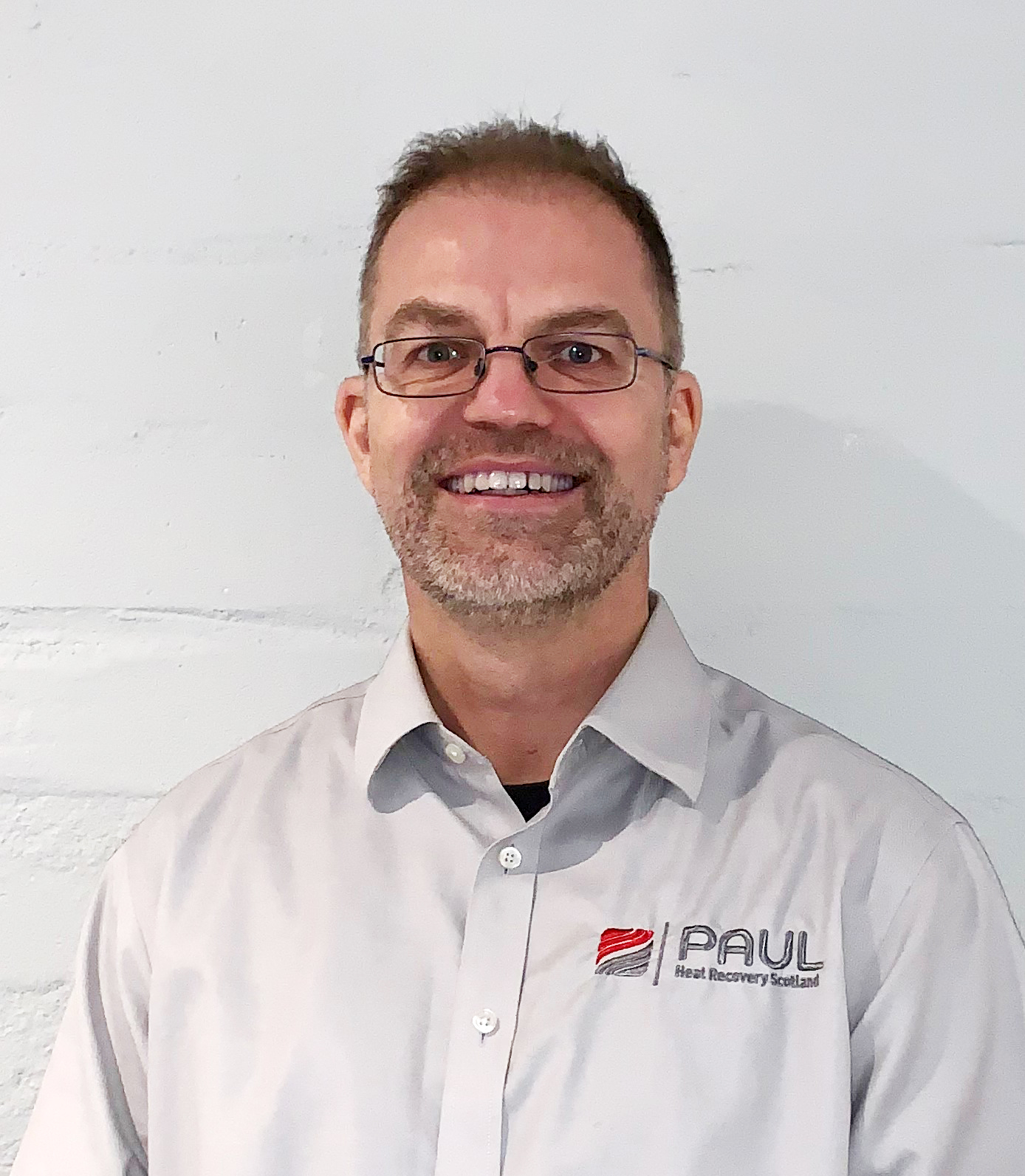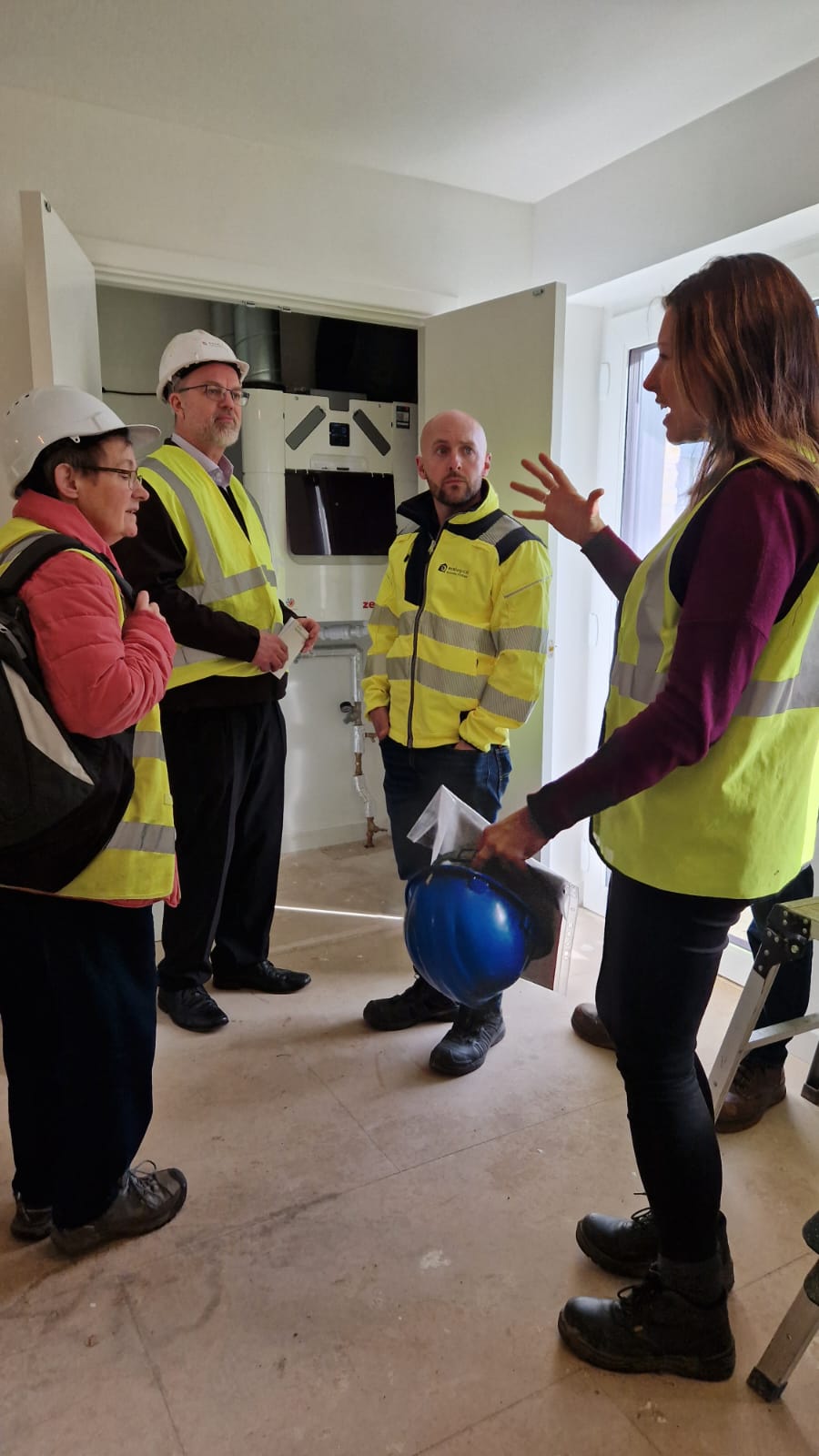Stefan Huber: MVHR and why we need more of it in Scotland

Stefan Huber
Now that the Scottish Passivhaus equivalent consultation is live, Stefan Huber, managing director at PAUL Heat Recovery Scotland, explains how MVHR works and why it is needed in Scotland.
The Scottish Government is currently undertaking a consultation on a policy to introduce a Scottish Passivhaus equivalent for newbuild housing across Scotland. The Passivhaus standard reduces heating energy demand in homes by 79% compared with current Scottish building regulations, while maintaining high levels of occupant comfort and health. Mechanical ventilation with heat recovery (MVHR) is an essential feature of Passivhaus homes.
MVHR is a relatively simple piece of technology for homes and buildings that works by recovering heat from stale, used air (e.g. from bathrooms and kitchens) and transferring it to fresh yet cold air. The stale air still goes out, but the heat is re-used. MVHR can have a big influence on a building’s energy savings, as well as improving occupant comfort and indoor air quality.
MVHR provides controlled ventilation for energy efficient buildings and uses little energy to run. It is the only form of ventilation that cuts out almost all of heat losses that come from ventilation (e.g. opening windows or trickle vents), which can make up to 30% of the heating demand of a dwelling. A recent study has shown that the average indoor air quality in modern homes with natural ventilation via trickle vents is alarmingly poor. By contrast, MVHR is a ventilation method that has been proven to be predictable and consistent in providing the required amount of fresh air into each room, as well as extracting stale and polluted air where needed.
MVHR is also an essential component of a Passivhaus building. With the Scottish Government currently undertaking a consultation on its Scottish Passivhaus equivalent legislation for newbuild housing, it is clearly a technology that Scotland is going to be seeing more of and needs to understand and embrace.
PAUL Heat Recovery Scotland is a long-established company based in Dunfermline that has been designing, installing and maintaining MVHR systems in Scotland since 2008. We started small with 3 staff, working on one-off self-build projects. In recent years demand has grown exponentially as Passivhaus has become more mainstream. We now have a team of 19 and have worked on large-scale social housing schemes including for Midlothian Council and the Springfield Cross project in Glasgow. We, alongside the wider MVHR supply chain across the UK, are working hard to meet the growing demand in Scotland.

Stefan Huber (second from left) in front of MVHR system at the Burnbrae Passivhaus social housing scheme for Midlothian Council (Image: Passivhaus Trust)
It is incredibly important that MVHR design and installation are done well to ensure a quiet, efficient, and well-running operation. Passivhaus certification includes checks and balances on MVHR installation, offering quality reassurance. Given the importance of good MVHR design and installation for Passivhaus buildings, we agree with the Scottish Government that it is important that a transition period is put forward for the introduction of the Passivhaus equivalent.
There needs to be considerable upskilling within the Scottish construction industry. From an architectural point of view, tremendous progress has been made over the last decades to upskill to Passivhaus standards. A growing number of tradespeople have embraced the opportunity to upskill but there is obviously still an urgent skills gap within the construction sector for training in all aspects of ventilation and Passivhaus.
There is currently no mandatory course for domestic ventilation installation in the UK, so PAUL Heat Recovery Scotland has started to offer an extended course incorporating 3 days of training. We’d like to see it as mandatory training for everybody who installs and commissions MVHR systems. We’d like to see it taken to the colleges across Scotland as part of plumbing and electrical trade courses. We are working with the Passivhaus Trust and BE-ST on a new training module to improve MVHR installation quality standards. To deliver on its Passivhaus equivalent plans, the Scottish Government will need to support funding for this ventilation installation training.
We recently spoke with one of the big training providers for MVHR in Austria. They no longer need to provide domestic ventilation training as the market is fully up to speed. MVHR training was introduced there about a decade ago, so plumbers and apprentices have already undertaken MVHR training. The only training now offered is on specific MVHR systems.
Scotland and the UK need to catch up. As a company, we will do all we can to help this transition.
The Scottish Government’s support for the Passivhaus standard is to be admired. Passivhaus offers best practice from design to finish, drawing on a vast amount of experience and best practice from tens of thousands of projects across Europe. The consultation on the Scottish Passivhaus equivalent is open until Wednesday 23 October 2024. We’re joining the Passivhaus Trust in encouraging the Scottish public and construction industry to respond to the consultation to ensure the policy is ambitious and lives up to its potential.








